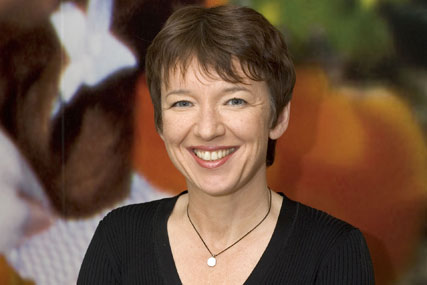
Speaking at the Marketforce and IEA Future of Broadcasting Conference yesterday (30 June), Airey said Five had increasingly been seeking advertiser-funded programming in primetime - "not late-night funded programming or programming that is banished to the fringes of daytime".
The animated chief executive was confident such partnerships were resulting in strong content, claiming a huge amount had "real editorial integrity".
And Airey said she would like to take Five's commercial partnerships further, with the hope that the appointment of a new Secretary of State for Culture, Media and Sport, could result in "some sense on the question of product placement".
"The previous incumbent, dear Andy Burnham, genuinely believed that if you started showing real brands that real people use, then it would, in his words, 'contaminate' our programmes," she sneered, adding, "Contaminate with what, authenticity?"
Airey also urged the room of 140 broadcasting delegates to show more commitment to working together to build "mutually beneficial partnerships", warning that if the industry did not, the creators and providers of UK content were "not so much looking into the perfect storm, but starring into the abyss".
Citing a series of failed or flawed British partnerships, from Project Kangaroo and Sky’s stake in ITV, to Five’s own funding solutions proposed to Channel 4, Airey conceded that collaboration is not something that comes easily to the industry.
"Partnerships between British broadcasters never seem to take hold because either we hold one another in mutual disgust, [or] the competition authorities, as ITV has argued, seem unable to fully reflect the long-term public interest in their deliberations.
"And there is [also] the fact that we labour under a rather cumbersome, although it’s getting slightly better, outdated regulated regime."
However, Five’s chief suggested that in today’s current climate, you either "reach for the razor blades or you start contemplating new and different sorts of partnerships".
"Ones that are outside the traditional ways of doing business and that might bring together complementary sets of skills that could help diversify revenues and improve the experience for viewers."
Airey, the one time director of global content at ITV, praised the BBC in the wake of its doomed Project Kangaroo, which did not make it past the Competition Commission, for "dusting itself off" and "starting afresh" with public service partnership proposals.
She said that new initiatives such as projects Marquee and Canvas, in which the BBC joins together with other broadcasters as it does with Freeview, helped "alleviate the degree of risk" that any single player in those markets could not have afforded on their own.
She hoped both would not be forced to sit around in the "limbo land" of endless approvals processes and competition tests, warning that if they did, the major beneficiary will be America.
Hulu, the commercial-supported streaming-video website of TV shows, was identified as being "one of the biggest success stories" in the last year, despite having three "ferociously competitive" global players in the mix: Fox Entertainment, NBC Universal and Disney’s ABC.
"They are grown-up enough to realise there’s a time to compete and fight, like rats in a sack, and there’s a time to put aside your difference and form partnerships that are mutually beneficial," said Airey.



.jpg)


.jpg)